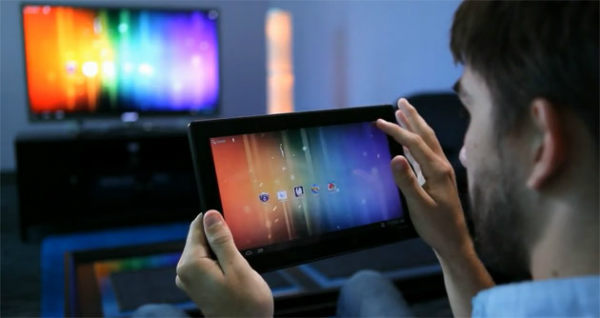Affiliate links on Android Authority may earn us a commission. Learn more.
A look into Android 4.2 Jelly Bean's wireless display mirroring through Miracast standard

You might say that this is not exactly a new technology, as similar features are present in older handsets. Take for instance DLNA-enabled smartphones and TV sets. The Digital Living Network Alliance standard offers sharing of content across devices. Apple also has its own AirPlay technology.
But the inherent advantage of Android’s more open nature is that with wireless display mirroring as a standard, more brands and manufacturers will adopt the technology. This means that we can expect to enjoy display mirroring on more devices in the future.
But how does this technology work exactly? It uses a wireless-syncing technology called Miracast (which sounds like “mirror cast” to me).
This technology is a standard created by the Wi-Fi alliance, and uses Wi-Fi direct access, similar to creating an ad-hoc network. This means that you can share content across devices using the built-in WiFi radio, without the need for a central router or hub.
But since not all display devices support Miracast out of the box, so-called legacy TVs and other devices can support wireless display mirroring through an add-on dongle. One example is the NETGEAR Push2TV PTV3000, which plugs into any device with an HDMI port.
As with any standard, what’s important is brand adoption. You’re familiar with the VHS vs. Betamax wars, right? How about Blu-Ray versus HD-DVD? What’s great with having a prevalent standard is that brands can offer inter-operability with each other.
While brands like Sony and Samsung have initially pushed DLNA, LG seems to be making a big push for Miracast in its future devices, including TV sets and smartphones. Other brands that have committed to the standard include NVIDIA, Texas Instruments, Qualcomm and Marvell Technologies.
Not intrigued enough? Check out the demo video below, in which Texas Instruments has showcased the capabilities of Miracast.